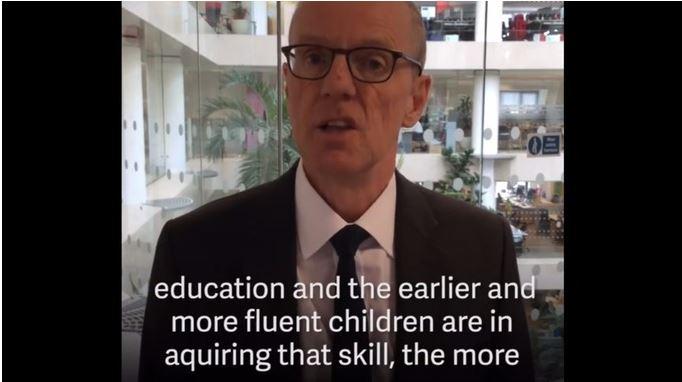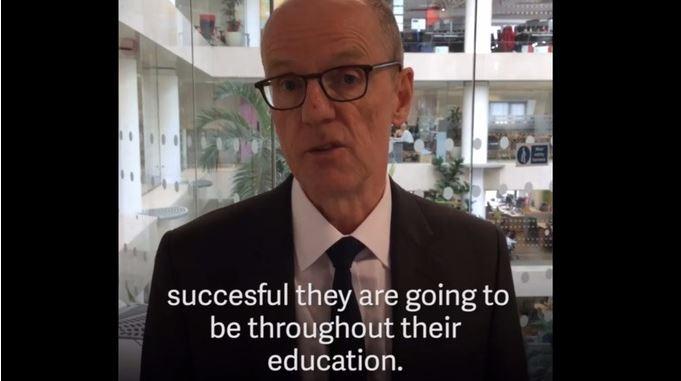Government video on children's literacy scorned for spelling errors
Misspelt subtitles written over a statement from School minister Nick Gibb were ridiculed by viewers online
Your support helps us to tell the story
From reproductive rights to climate change to Big Tech, The Independent is on the ground when the story is developing. Whether it's investigating the financials of Elon Musk's pro-Trump PAC or producing our latest documentary, 'The A Word', which shines a light on the American women fighting for reproductive rights, we know how important it is to parse out the facts from the messaging.
At such a critical moment in US history, we need reporters on the ground. Your donation allows us to keep sending journalists to speak to both sides of the story.
The Independent is trusted by Americans across the entire political spectrum. And unlike many other quality news outlets, we choose not to lock Americans out of our reporting and analysis with paywalls. We believe quality journalism should be available to everyone, paid for by those who can afford it.
Your support makes all the difference.The Department for Education (DfE) has been made to apologise after making embarrassing spelling errors in an online video praising children’s literacy rates.
In the clip, Schools minister Nick Gibb announced the results of a phonics test taken by six-year-olds across the country.
Mr Gibb noted that a further “147,000 children in the UK are on track to become excellent readers”.
“Reading is a fundamental building block of an education and the earlier and more fluent children are in acquiring that skill, the more successful they are going to be throughout their education,” he added.
The video’s subtitles, however, spelt the words “aquiring” (acquiring) and “succesful” (successful) incorrectly.
Facebook users were quick to point out the mistakes, which were later taken down from the website.


One person said: “Shame [on] the person transcribing this official broadcast from the DfE.”
“Hilarious,” another added after the mistakes were corrected, “maybe we can all amend our phonics checks and resubmit those? Seems to be the current policy on gaffs”.
The nationwide phonics test is carried out on five and six-year-olds in their first year of school.
Pupils must correctly pronounce a list of 40 words and sounds - a technique that is necessary for teaching the first stages of reading and writing.
A Department for Education spokesperson said in response to the errors: “We are aware that the video contained mistakes. These have now been corrected.”

Join our commenting forum
Join thought-provoking conversations, follow other Independent readers and see their replies
Comments